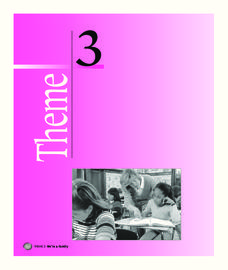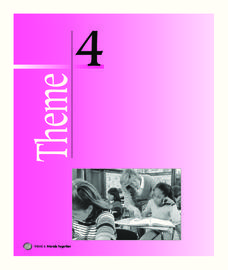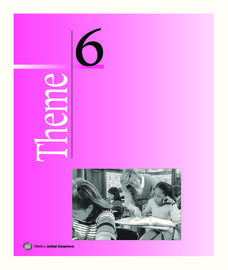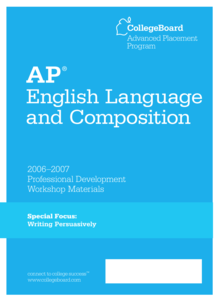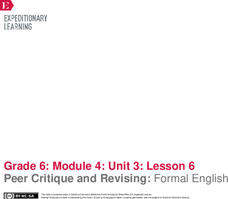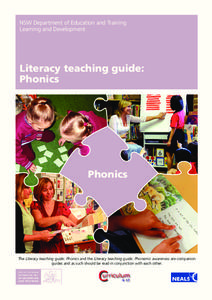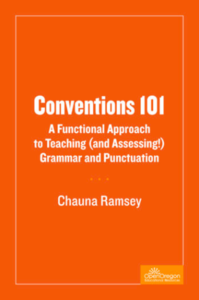Houghton Mifflin Harcourt
We’re a Family: English Language Development Lessons (Theme 3)
Teach your English language learners how to talk about their families with three weeks of lessons. Over the course of the thematic unit, learners pick up new vocabulary so that they can talk about families and relationships, clothing,...
College Board
AP® English Language Special Focus: Using Sources
What is the most effective way to teach scholars how to write a research paper? Educators explore the topic with the AP® English Language and Composition exam resource. The reference material guides teachers in best practices for using...
Read Works
Figurative Language
Here's a richly detailed unit, designed for second graders, that focuses on decoding figurative language, including similes, metaphors, personification and idioms.
Really Good Stuff
English/Spanish Cognates: Food
Everyone loves food! Help your English language learners pick up some vocabulary with a series of activities based around cognates and food. Pupils practice each word and focus on the words in-depth by filling out Frayer model...
British Council
Learning English through Short Stories
Use short stories to teach English? Yes! Designed as a professional development opportunity for English language teachers, the ideas in this booklet can easily be adapted to advanced ESL/ELL classes.
College Board
AP® English Language and Composition: The Rhetoric
Does it seem impossible to make academic growth with advanced learners? Without rigorous instruction, it likely is impossible. The AP® English Language and Composition: The Rhetoric offers a complete resource for educators teaching...
Houghton Mifflin Harcourt
Friends Together: English Language Development Lessons (Theme 4)
Enjoy this thematic friendship unit compiled with ESL lessons to develop strong language development while listening, speaking, looking, and moving. Class members participate in activities covering topics like making friends, asking for...
Houghton Mifflin Harcourt
Talent Show: English Language Development Lessons (Theme 6)
This 32-page packet, the second in the series of support materials for the Houghton Mifflin Harcourt thematic entitled "Talent Show," is designed specifically to support language learners.
Houghton Mifflin Harcourt
Animal Encounters: English Language Development Lessons (Theme 6)
Denali National Park and the rain forests of Brazil are the settings for a series of lessons on animal encounters with grizzly bears and golden lion tamarins. The 32-page packet includes scripted lesson plans, activity suggestions, and...
Achieve3000
Figurative Language
Similes and metaphors make writing more beautiful and detailed, but can be a little harder to decipher during a first reading. Use a passage from The Man Who Loved Words to show young readers how to think through passages that contain...
Curated OER
Teaching Debate to ESL Students
Language learners use the debate format to practice formulating, expressing, and defending their ideas. Working in teams, class members develop resolutions, use opinion indicators to express their opinions and reasons, and prepare...
College Board
AP® English Language and Composition Special Focus: Writing Persuasively
It's not always easy to persuade others. However, it may even be harder to teach others how to be persuasive. Educators get personal insight from Brent Staples, an influential commentator, as well as gain ideas and activities on teaching...
Illinois State Board of Education
Common Core Teaching and Learning Strategies
Here's a resource that deserves a place in your curriculum library, whether or not your school has adopted the Common Core. Designed for middle and high school language arts classes, the packet is packed with teaching tips, materials,...
EngageNY
Peer Critique and Revising: Formal English
Dear Sir or Madam: What's the difference between formal and informal language? Scholars focus on using formal English and transitions in their position papers. After revising their rough drafts, they engage in the peer editing process...
The New York Times
Evaluating Sources in a ‘Post-Truth’ World: Ideas for Teaching and Learning about Fake News
The framers of the United States Constitution felt a free press was so essential to a democracy that they granted the press the protection it needed to hold the powerful to account in the First Amendment. Today, digital natives need to...
National Humanities Center
Teaching The Great Gatsby: A Common Core Close Reading Seminar
The 41 slides in a professional development seminar model how to use close reading techniques to examine the many layers of F. Scott Fitzgerald's The Great Gatsby. In addition to passages from the novel, slides provide biographical...
EngageNY
Reading Shakespeare: Understanding Shakespeare’s Language
Pupils participate in a drama circle to read Shakespeare's A Midsummer Night's Dream aloud. They work with partners to discuss Shakespeare's use of language and analyze how specific lines of dialogue within the play help propel the...
Vanderbilt University
Literacy Teaching Guide: Phonics
You don't have to be a teacher in New South Wales to appreciate this phonics teaching guide. The 73-page packet is packed with information about the principles of effective phonics programs, teaching methods, sequencing, key strategies,...
EngageNY
Grade 11 ELA Module 2: Unit 1, Lesson 22
Say precisely what you mean. Scholars analyze the importance of Washington's precise language in paragraphs eight and nine of the "Atlanta Compromise" speech. They interpret his figurative language and add it to their Idea Tracking...
ESL Kid Stuff
Christmas Lesson 2
Wrapping presents, singing Christmas carols, writing Christmas cards and learning holiday vocabulary are all wrapped into this one exciting ESL lesson.
Portland Public Schools
Teaching Tone to Teenagers
Tone is a tough topic to teach to teenagers. But never, fear, help is here in the form of a unit plan that takes advantage of their interest in music to set the stage for a series of activities that lead them to understand how setting,...
Open Oregon Educational Resources
Conventions 101: A Functional Approach to Teaching (and Assessing!) Grammar and Punctuation
Let's eat kids. Let's eat, kids. Commas make a difference! Conventions 101: A Functional Approach to Teaching (and Assessing!) Grammar and Punctuation explains ways to teach the importance and use of conventions. Learners take part in...
Curated OER
Magical Musical Tour: Using Music Lyrics to Teach Literary Elements
While music lyrics are often used to teach literary elements, the richness of this resource comes from the wealth of exercises, activities, and support materials provided in the packet. Although designed for gifted learners, the...
Center for Literacy and Disability Studies
Activities to Support Teaching the Alphabet
Whether or not your class includes kids with significant disabilities, teaching the alphabet to emergent readers and writers can be a challenge. Here's an activity packet designed for all learners.


